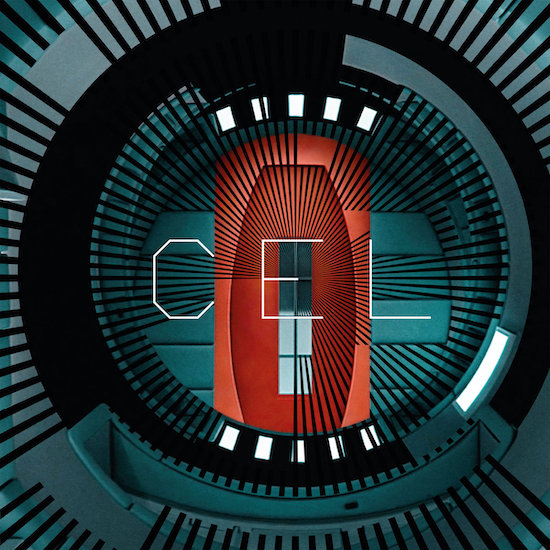The notion that music is a conversation is not new. This idea works in a couple of ways: first, the listener listens and responds accordingly, then decides whether to continue, to listen again; second, the various elements of music are yoked together in smooth synergy, with melodies informing chords, verses characterising choruses, and so on. Dr Katherine Hambridge notes the examples in classical music of the traditional French title ‘pièce dialogué’ and Italian ‘conversazioni a tre’. This idea doesn’t just apply to classical stuff and, although to gloss everything like this is obviously reductive, most popular Western music follows a similar tradition. It’s the very lack of convivial familiarity in CEL’s debut album, both between it and the listener, and between the arrangements’ component parts, that strikes me. This music is less an easy, harmonious dialogue and more a stern address.
‘Pin Korridor’, the opener, is a marauding ten-minute statement that refuses to stop or converse. It sounds like a Perc track with all the filth and grime scraped away, leaving the baleful clank and chug of the engine beneath. Can at their most bullish rarely achieved something so direct. Even at the end, once the drum part has been dismantled and broken down, the song can only splinter into a muffled purl of feedback; there are no recaps or concluding thoughts here. All of the songs on the record follow a similar template, with various peripheral loops being introduced and removed while the strong central theme, usually a drum motif or jagged bass part, persists.
The album’s press release identifies a "restlessness" stretching throughout. That feeling of restlessness doesn’t have an object, a destination, though. It’s a heedless restlessness taking the form of short-circuiting, such as dissonant overtones on ‘Doppelbild’, rhythmic irregularities, such as the tempo rubato hi-hats on ‘Lichtton’, and loops that splutter then stop, such as the buzzsaw synth on the intriguingly named ‘Jimmy Carter’. The songs’ introductions often have the feeling of ‘oh drat, we’ve started already – better just play something and crack on’. Furthermore, there isn’t a great deal of structural development. Like a krautrock Forrest Gump, the pieces run with no destination. CEL set upon one central idea and, although it might be slightly adjusted, let the groove proceed. Once more, it’s a one-way address that demands to be heard.
The constant dissonance is an important characteristic of CEL. Of this there are tonnes of examples, from the frantic, skittering glockenspiels on ‘Elektrybalt’ jarring both in tone and pitch with the thick bass synthesizer, to the boneless, spectral radar noise in the first minute of ‘Doppelbild’ (one of my favourites from the album) that seems to adhere to a discordant scale of its own. To labour the point just one more time about music being a conversation, each piece has the various elements speaking over one another or simply not responding, in key or sometimes rhythm, to what the other is saying. It’s rare that you get two parts that are in key with each other, and so feels more rewarding when it occasionally happens. Dispensing with the dissonance would have left a less remarkable record. Such is the jangling discordance that one stops trying to make sense of it and simply treat it like words sung in another language, letting the material speak for itself without interruption.
Despite everything, CEL never feels sprawling. It’s not complete anarchy. The arrangements remain lean and starched, austere even, with clipped, unprocessed jazz drum breaks regimented underneath icy, hyperactive square wave arpeggios. Although this is an unsociable record both in the ways I’ve discussed and furthermore, probably, not one to stick on at a fête, it still feels thrilling, a wholly enjoyable cacophony. CEL are in rude health.


